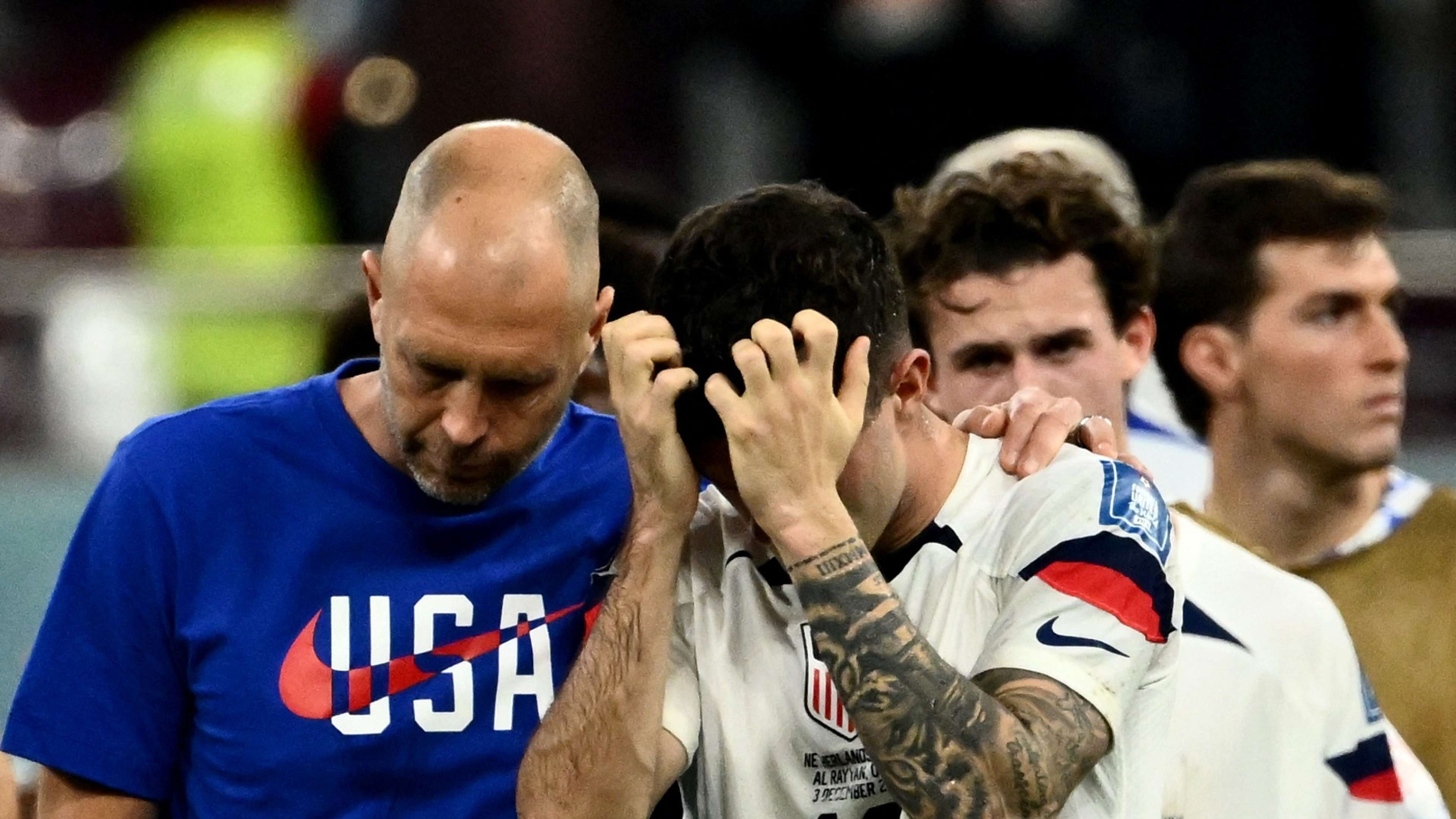If you're looking for a little perspective on the U.S. men's national team, there aren't many better places to start than DeAndre Yedlin.
That's because he's the only player on the team who has felt this pain before. As his teammates suffered through their first soul-crushing World Cup elimination, Yedlin was able to reflect, remember and project.
He was on this end of it in 2014 when the U.S. fell at the same hurdle it stumbled at on Saturday. In 2014, the round of 16 against Belgium was a step too far. This time, it was the Netherlands that ended a young USMNT's time on the biggest stage, punishing the Stars and Stripes for their mistakes and outlining the gulf in quality between nations.
That's one side of it, how far there is left to go, but there is something important about also reflecting on how far the team has gone in such a short time.
"I think it's a step forward," said a collected Yedlin just moments after several of his teammates spoke to the media with tears in their eyes. "I think things happen for a reason, and you look at 2018 and you didn't qualify and people ask why. Well, I think if you qualify in 2018, this group that we have right now isn't together.
"I don't know why it happened like this or what will come in the future, but I'm sure at some point, it will make sense."
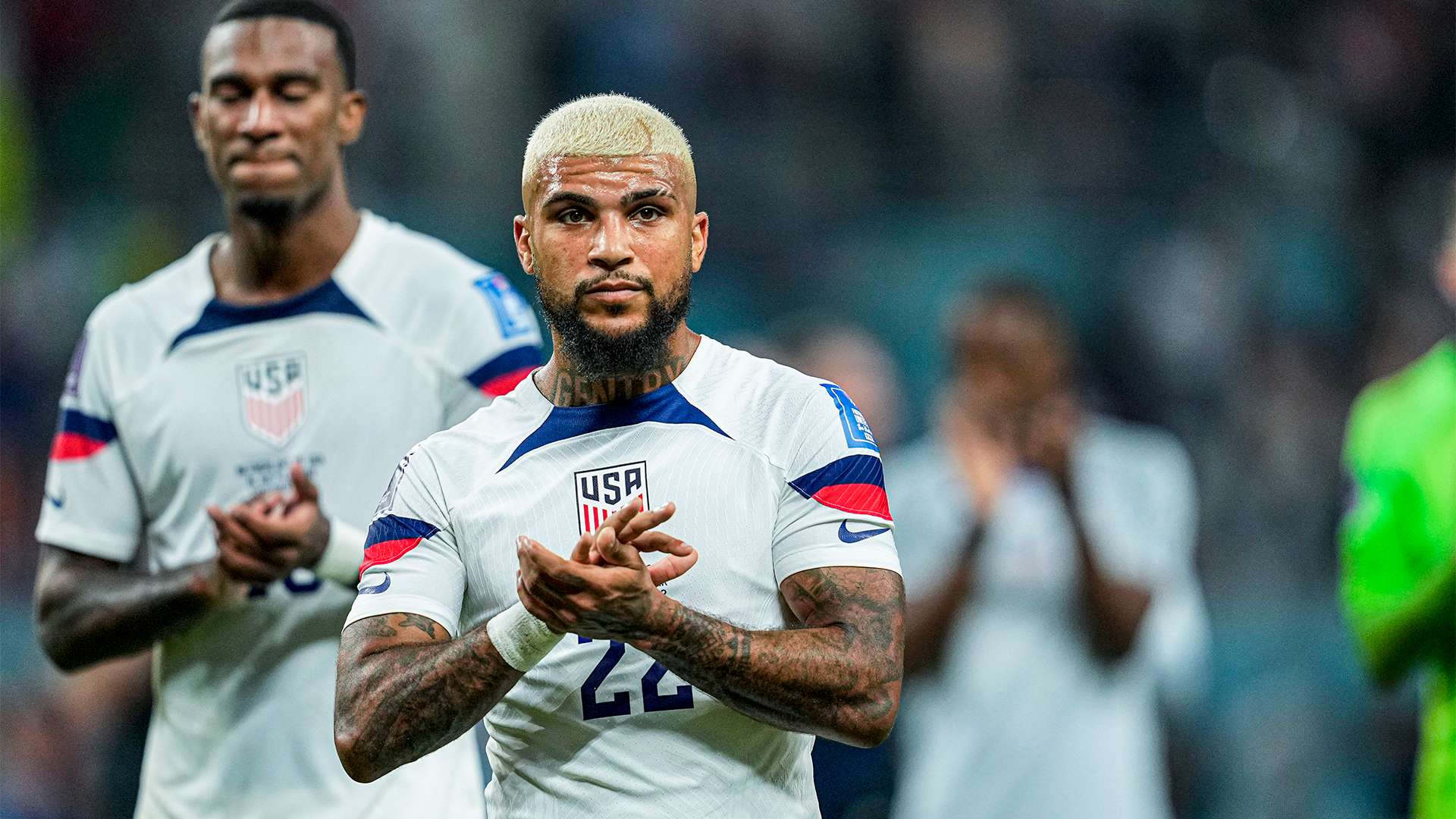 Getty Images
Getty ImagesWise words from the 29-year-old veteran, but ones his teammates won't want to hear just yet. But that's the nature of this business, is it? Wondering about what's next.
For the USMNT, what's next is a 2026 World Cup on home soil that is now just three-and-a-half years away. In the soccer world, that is both right around the corner and a millennium away. Much can change, but much can stay the same.
What is clear is that this World Cup, the 2022 edition, did serve its purpose. It was a World Cup that was about redefining the USMNT program, both at home and abroad and, by and large, the players did just that.
The U.S. escaped from a group featuring England, Wales and Iran, going toe-to-toe with each. It played attractive, attacking, proactive soccer in a way that we'd never seen before. In the loss to the Netherlands, the Dutch side showed the U.S. a measure of respect, even if allowing the U.S. to have the ball was part of its tactics.
Something has to be said for that, and something has to be said about the U.S. players who accomplished it.
The second-youngest team in the tournament, the USMNT always went into 2022 with half an eye on 2026. With so many 20-to-24-year-olds, this tournament was the beginning, not an end. The road is long, and this story is just starting to be told.
Christian Pulisic, Tyler Adams, Weston McKennie, Gio Reyna, Yunus Musah, Sergino Dest, Brenden Aaronson, the list goes on and on. All are in the very early stages of their careers and all will be a bit closer to their primes by the time the 2026 tournament rolls around.
"It is another experience for all these guys," a solemn Pulisic said after the match. "There’s for sure moments we can be really proud of. We don’t want to feel like this again and we want to put ourselves in a position to win tournaments like this."
"Clearly, we didn’t qualify for the last World Cup and here we are in the round of 16," he added. "We’ve definitely come a long way. Right now, it is just tough and it hurts after a loss like that. We felt we could have done more."
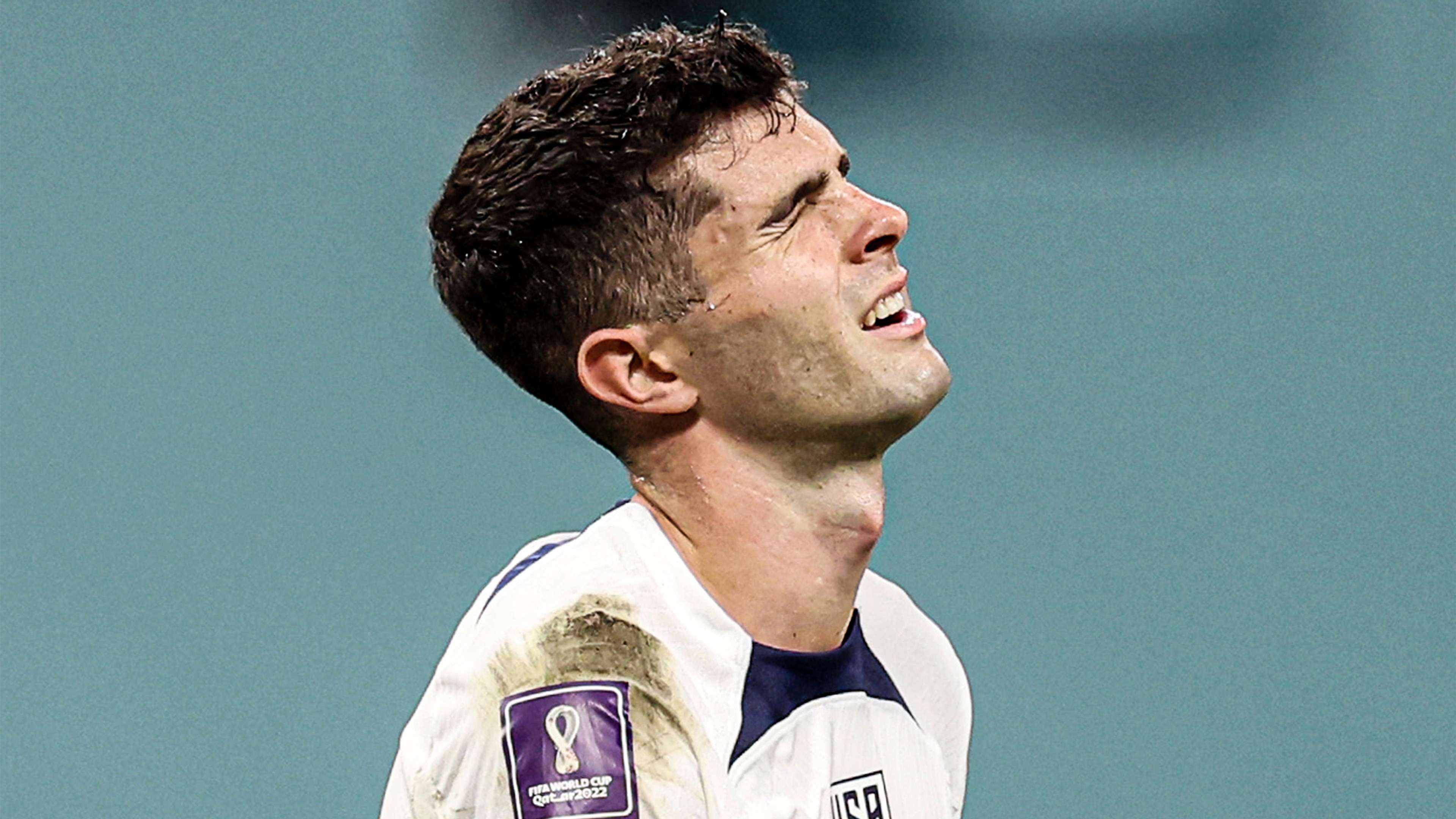 Getty Images
Getty ImagesThat, itself, is a sign of progress: the desire for more. The young USMNT has taken this one on the chin, no doubt, but it will get a chance to throw some punches of its own in a few years' time.
Well, not all of the players. Such is the nature of a World Cup. This exact group, this 26-man squad, will never be together again. Players will come into the fold in the coming months and years, some expected and some unexpected. We knew little of Aaronson or Musah four years ago, and there will surely be more.
"We've built a culture," Yedlin said. "There's going to be some guys that won't be a part of the next one, and there's going to be some people that leave the group, but we've built a foundation and a culture. If guys don't fit into that culture, then you probably won't be with the group. The culture is very good, very cohesive. It's a brotherhood. I'm pretty proud of it."
That brotherhood will evolve and expand, and there will be questions to answer, too. One is at striker, the one that is perhaps the most pressing. The USMNT will need a goalscorer, whether that's a guy on this squad or elsewhere.
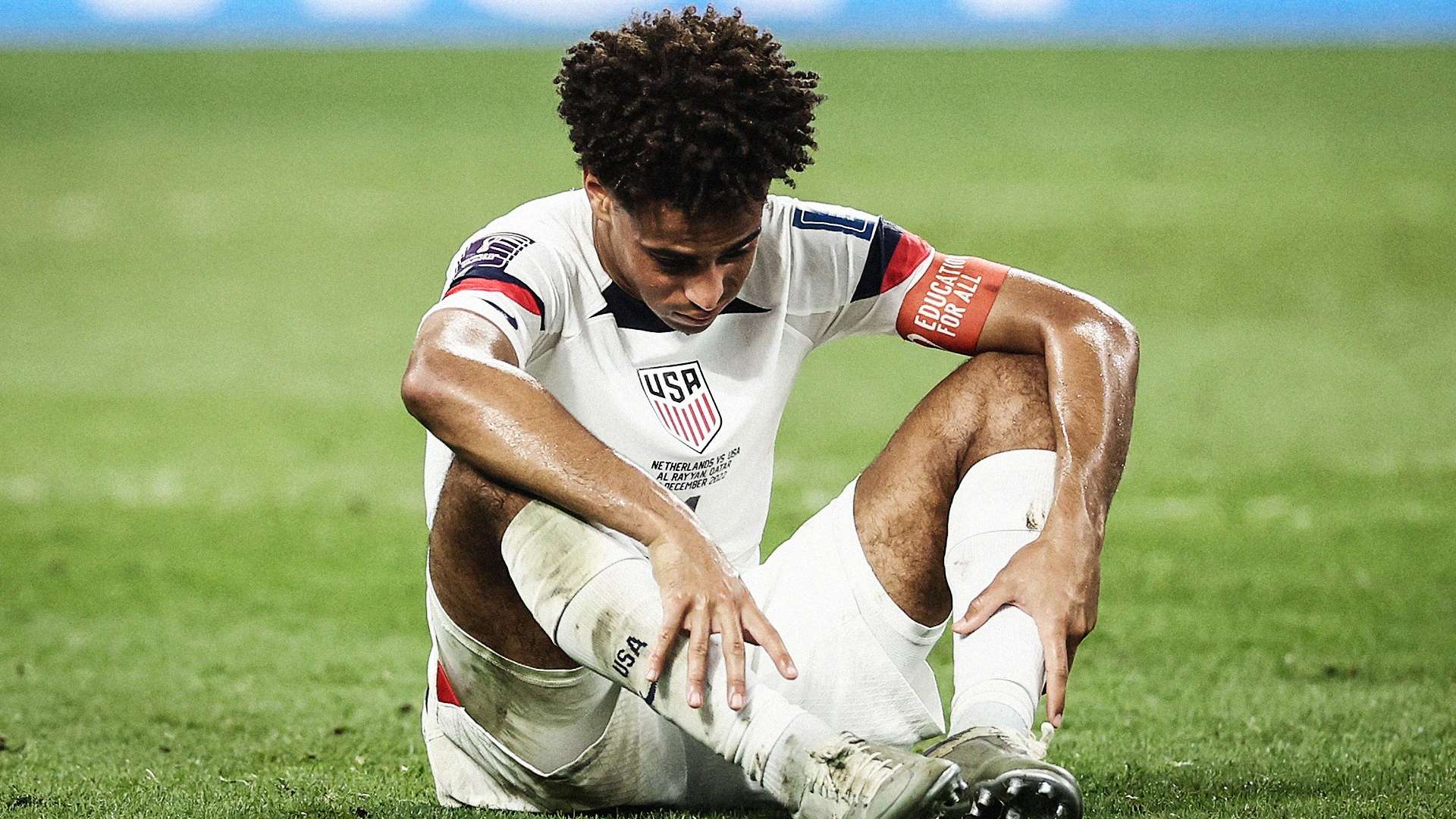 Getty
GettyThe team also needs a center back to replace Tim Ream, who was arguably its MVP of this tournament. The 35-year-old Fulham star must have felt he'd never get this chance after not featuring through qualifying but, when he did it, he became irreplaceable.
"I've tried to convey to the guys that you're never guaranteed anything in this game," an emotional Ream said after the game. "I've been in the program for 12 years and was never, never, guaranteed anything. Obviously, a lot of these guys are guaranteed another World Cup and for me, that's not gonna happen, so what we're trying to convey is to treat each and every training session as if it was their last, each and every game as if it was their last.
"Tomorrow, if it all finished and their career was done with, would they be happy with it? I can honestly say, if that is the case for me, yes, I've given it everything and I hope these guys take that advice because I think it's it's something that's important: not taking anything for granted."
Additionally, there are questions at head coach, with Gregg Berhalter's future somewhat uncertain. Coaches often change at the end of four-year cycles, and Berhalter was non-committal when it comes to his status with the team.
"In the next couple of weeks, I'll sit down and clear my head," Berhalter said, "and think about what's next."
It won't be easy now, but soon everyone in the U.S. squad will focus on the next step. As Ream and Yedlin said, many will play at another World Cup, although the two who said it probably won't get this opportunity again.
So what have we learned? We learned that margins are fine, especially at the highest level. We learned that chances are vital, and that squandering them can ultimately lead to your demise.
Perhaps most importantly, we learned that the U.S. is getting closer to where it wants to be, even if it isn't there yet.
The players will have learned all of those lessons, some more harshly than others. And, for many of them, they'll get a chance to show what they've learned in a few years in front of a pro-American crowd on home soil.
But this will sting for a while for many of them.
Ream wasn't the only one in tears. Pulisic looked emotionally drained throughout his time with the media, having already received a welcome hug from his parents. Weah sat alongside Yedlin, Aaron Long and Sean Johnson on the pitch, each taking one last moment of "grounding", as Yedlin called it, to find a little perspective.
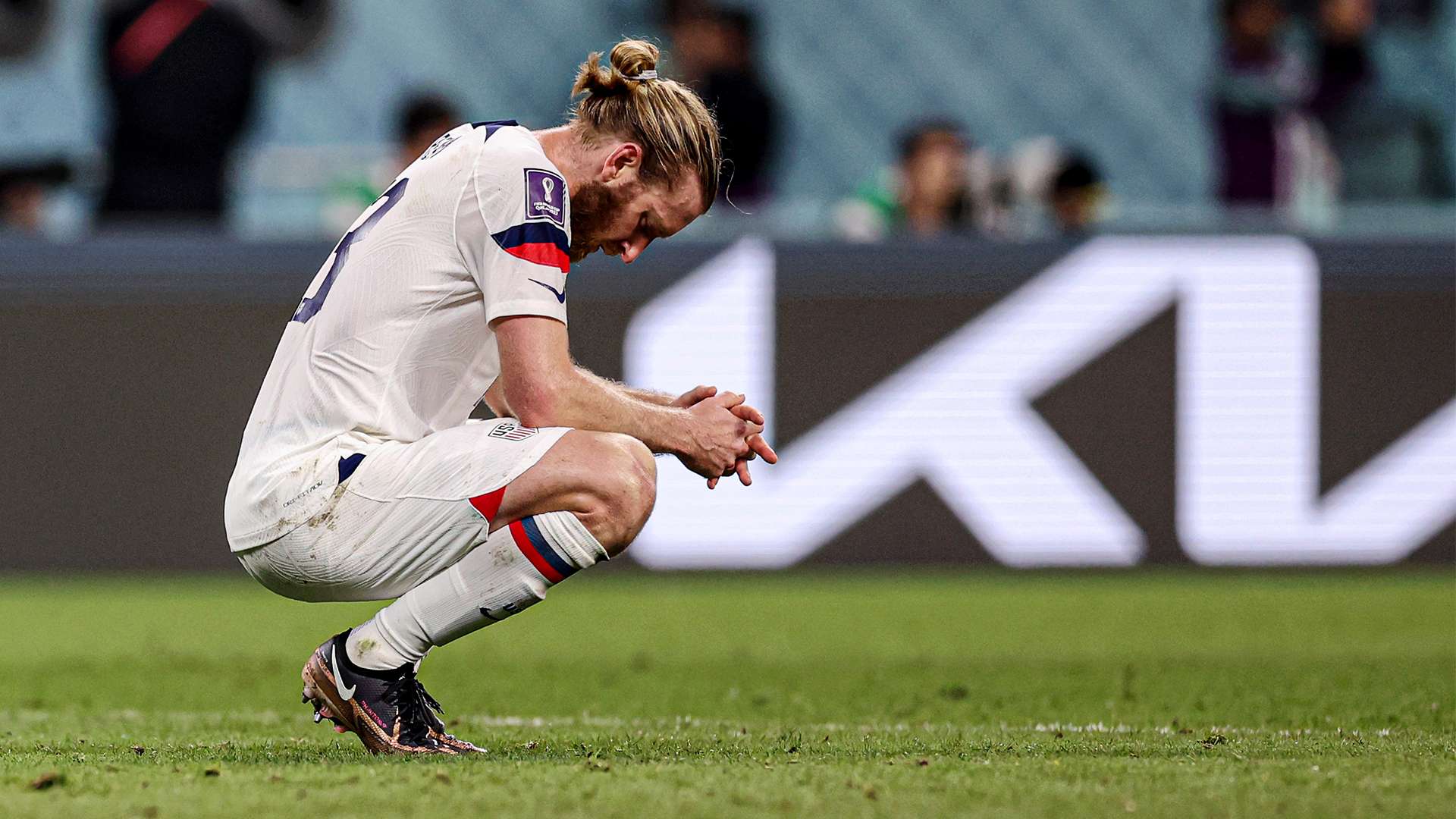 Getty Images
Getty ImagesWith this team, perspective is key. It'll hurt for a while, yes, especially for a team that did seemingly genuinely believe it could shock the world by winning the World Cup. But, soon enough, it all starts again.
The road to 2026 will be different with no qualifiers, fewer big games, some new faces.
Then, at the end of the final stretch to that tournament, it may be American soccer's day in the sun. The day the USMNT takes its place alongside teams such as the Netherlands that consistently cause the Stars and Stripes problems in the knockout stage.
"The biggest this group learned is what it feels like to lose in a World Cup, and that goes a long way," said Yedlin. "You look a lot of these guys, well, everybody besides myself, and they've never played in the World Cup before.
"Now you're going to the next one, and pretty much everybody in that group probably will have played, so now it's a whole different story. Now they know that feeling, of what it's like to lose after putting so much into it.
"And the feeling of defeat from the past, it can only fuel success in the future."
